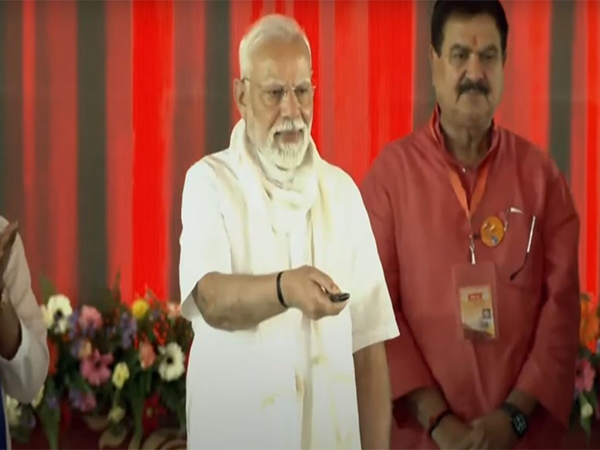Justice or revenge? Juveniles biggest losers in Kejriwal's game of populism

The proposed amendment
- The Juvenile Justice Act is to be amended so that 16-18 year olds involved in heinous crimes can be tried as adults
- The Lok Sabha has already passed the Bill in May, but the Rajya Sabha hasn\'t yet
The string-puller
- Arvind Kejriwal has been a vocal advocate in favour of this move since the 2012 Delhi gang rape
- Even as Delhi CM, he has reiterated this populist stance
- In doing so, he has weakened the activists who are concerned about human rights
More in the story
- How Kejriwal has set the agenda for other political parties, and why juveniles will suffer as a result
- Why RS MPs Ghulam Nabi Azad and Derek O\'Brien flip-flopped on sending the Bill to a select committee
Hari Shankar Parsai, the legendary Hindi literary critic, once wrote an essay titled 'Aawara bheed ke khatre', meaning 'the dangers of a vagabond mob'. Decades of political decisions based on populism bear testament to Parsai's observation.
The latest addition to the list is the proposed amendment to the Juvenile Justice Act, and the political consensus it seems to have generated.
In May this year, the Lok Sabha passed the Juvenile Justice (Care and Protection of Children) Act, 2014, which will allow children in the 16-18 age group to be tried as adults if they commit heinous crimes. The Bill has not yet been cleared by the Rajya Sabha, but is expected to be as the winter session draws to a close.
Also read: Nirbhaya changed nothing. Delhi continues to be the rape Capital
Kejriwal's hard line
When the brutal 2012 Delhi gang rape happened, the Aam Aadmi Party had actively participated in the movement to seek justice for the victim. At the time, its leader, Arvind Kejriwal, had demanded the resignation of then-Delhi CM Shiela Dikshit, for being unable to protect women in the capital.
However, even today, when he has been Chief Minister for 11 months, not much seems to have changed in terms of the number of rapes in the city.
Read more: Crimes by juveniles on the rise, but fewer of them are heinous
On 19 October this year, Kejriwal reiterated his old stance that the capital needs stronger laws to prosecute juveniles involved in heinous crimes like rape and murder. He set up a Group of Ministers to examine and recommend measures to treat the juveniles (15 years old and above) involved in these crimes as adults.
The very next day, a group of activists met him to express their disappointment and disagreement with the line taken by him on the issue of juvenile justice. The activists briefed him on how sensitively the issue must be dealt with, but Kejriwal responded with arrogance and aggressiveness.
He said: "Aapko apradhiyon ke human rights dikhte hein, victims ke nahi. Hum victims ke human rights dekhenge, apradhiyon ke nahi (you see the human rights of criminals, not victims. We will focus on the human rights of victims, not criminals)."
Also read: Juvenile Justice Bill gives justice to none. Least of all Jyoti's parents
Real care for victims' rights?
Kejriwal's tone and posturing made it clear that he had little interest in looking into the constitutional rights and legalities related to the issue. He opted for the populist line, almost an example of 'mob mentality', and vowed to deliver 'justice' in such cases.
Read more: Will support passage of juvenile bill: Rahul Gandhi assures Nirbhaya's parents
One member of the delegation which visited him that day says: "It wasn't unexpected. His ideology and politics comes from and remains in the populist, opportunist realm, rather than developing a more rational and deeper understanding of issues."
Having tried to explain to Kejriwal, unsuccessfully, that human rights could not be defined in terms of 'victims' and 'criminals', the delegation was left with not much else to say. It did tell him, however, that if he was serious about justice for victims, he should introduce victims' rights, which have been deliberately ignored and excluded by governments since independence.
The delegation sent Kejriwal's GoM a submission on victims' rights, which is still awaiting a reply.
Weakening the activists' position
Since the Lok Sabha passed the Juvenile Justice Act amendment, activists have been running from one relevant government department to another to put up arguments against it. They would've thought the delay in passing the Bill through the Rajya Sabha had given them a chance.
But after Kejriwal's public statement on 19 October, the activists' position has been considerably weakened. Every department now gives them the same response: "Stop complaining about our position on the lower age issue. If anything, we have a liberal position (16 years and above). The Delhi CM is taking a harder stand (15 and above), which is rigid and wrong."
Read more: #NirbhayaCase: the juvenile and why he must get another chance at life
Indeed, Kejriwal has damaged the scope of arguing in favour of juveniles. In fact, other political parties seem to be following his populist stance.
 AAP-jj-bill-embed-chandan-khanna.jpg" alt="AAP JJ Bill_EMBED_Chandan Khanna/AFP">
AAP-jj-bill-embed-chandan-khanna.jpg" alt="AAP JJ Bill_EMBED_Chandan Khanna/AFP">Photo: Chandan Khanna/AFP
Kejriwal has always believed in aggressive politics, often bringing the discourse to his level and making others follow his own agenda. The Jan Lokpal movement in 2011 was the same - only then, he wasn't the head of a political party or the Chief Minister of Delhi. It was always about "nothing less than what I have said". And so it is now too.
Setting the agenda
Then, the worst happened on the midnight of Saturday 19/Sunday 20 December, when Kejriwal's party and associates decided to re-enact the midnight plea the country had seen before Yakub Memon's hanging earlier this year.
Read more: Juvenile rape: why AAP's remedy is worse than the malaise
Delhi Commission for Women chairperson and Kejriwal aide Swati Maliwal moved the Supreme Court at 1:15am on Sunday, challenging the release of the juvenile convict in the 2012 gangrape.
It was another clear attempt to make the entire political discourse follow their terms. And they succeeded too.
Trinamool Congress's Rajya Sabha MP Derek O'Brien, who had earlier advocated for the Juvenile Justice Bill to be sent to a select committee, is now fighting to get it passed through the Rajya Sabha. Ditto for the Leader of the Opposition in the Upper House, Congress's Ghulam Nabi Azad.
Even the Left parties are divided on what position they should take on this issue inside and outside the House.
Read more: What if the culprit was 15 years and 10 months, asks Yechury on the Juvenile Justice Bill
Quite simply, Kejriwal & Co. have made it an 'Us vs Them' situation. Now every party wants to show its kindheartedness towards victims, without realising that what they are asking for is not justice, it's revenge. But by presenting it as 'you are either in favour of the victims or in favour of the rapists', Kejriwal has brought about a political consensus - only an unhealthy one.
Mob mentality
The fact remains that Delhi is still unsafe for women. From infants to senior citizens, if you are female, you are at risk. But Kejriwal, who has failed to improve safety, is simply trying to wash his hands of the problem by propagating himself as the one who 'fought against the criminals and brought justice to the victims'.
Read more: #Nirbhaya trial was a test case to destroy juvenile justice. Here's why it worked
What could be worse for a democracy than a situation where Khaps, mobs and people in non-constitutional positions decide the agenda of the media and lawmakers?
This is the same mentality that once demolished the Babri Masjid, killed people on the basis of their religion and caste identity, punished inter-caste marriages and many others. Now, it is playing with the lives and futures of juvenile criminals.
Kejriwal looks to have won it. And the only losers are the juveniles of India.
Read more: The Juvenile Justice Debate: why the lynch mobs should not win
First published: 22 December 2015, 15:11 IST
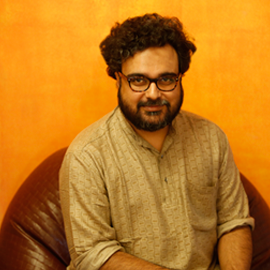

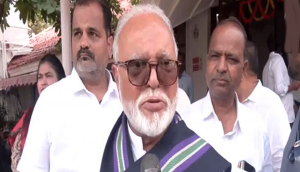
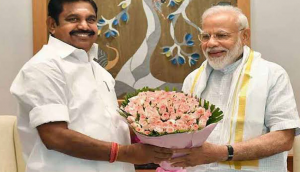
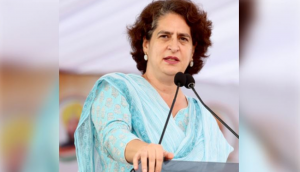
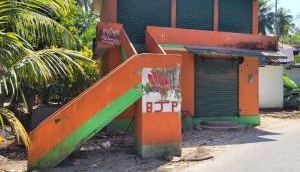
![BJP's Kapil Mishra recreates Shankar Mahadevan’s ‘Breathless’ song to highlight Delhi pollution [WATCH] BJP's Kapil Mishra recreates Shankar Mahadevan’s ‘Breathless’ song to highlight Delhi pollution [WATCH]](https://images.catchnews.com/upload/2022/11/03/kapil-mishra_240884_300x172.png)

![Anupam Kher shares pictures of his toned body on 67th birthday [MUST SEE] Anupam Kher shares pictures of his toned body on 67th birthday [MUST SEE]](https://images.catchnews.com/upload/2022/03/07/Anupam_kher_231145_300x172.jpg)






